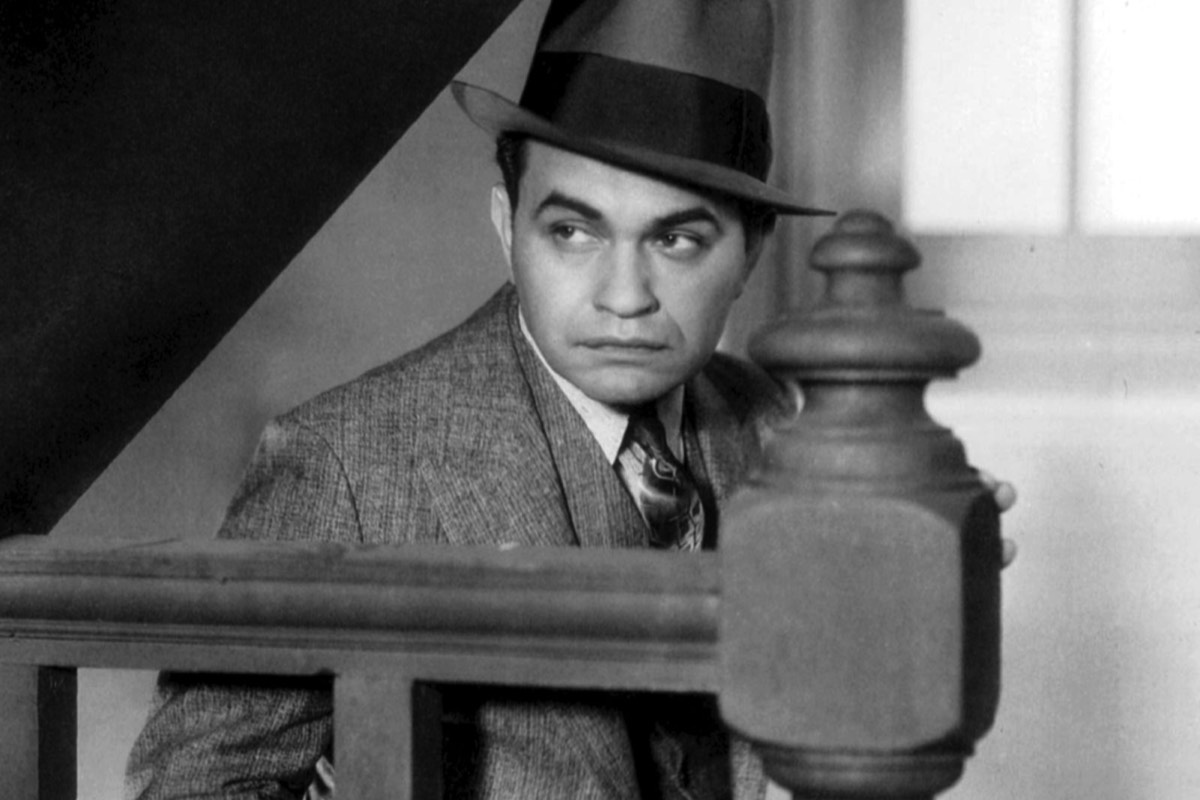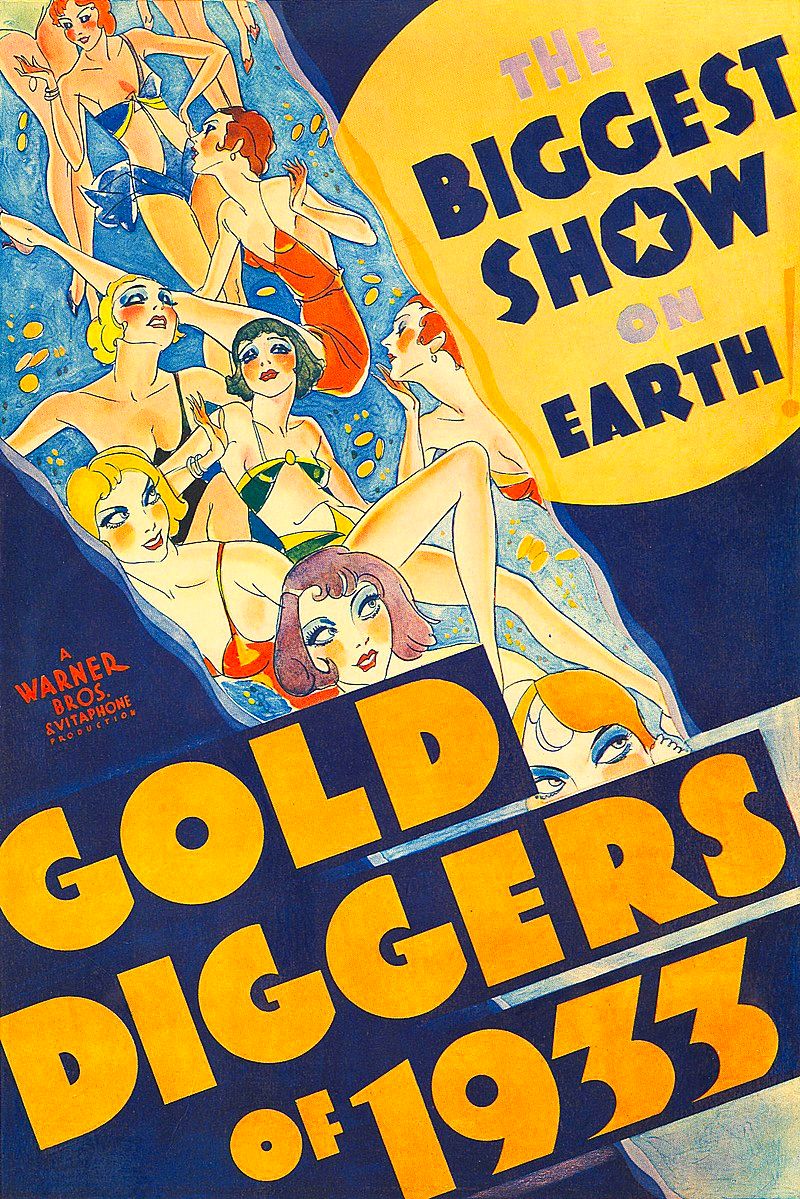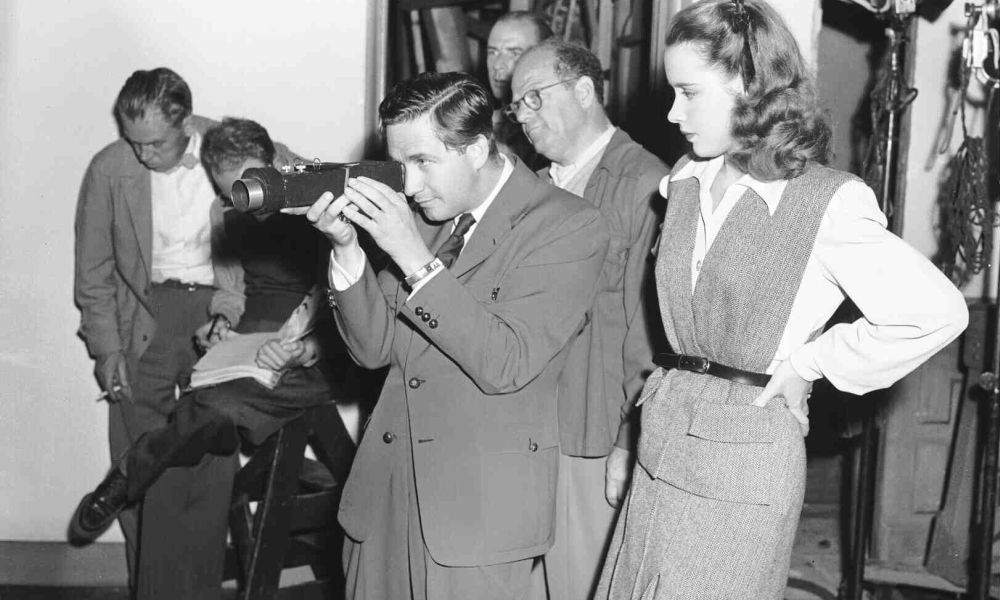"LeRoy did his best work at Warner Bros. in the 1930s, turning out a string of gritty realistic films which reflected the hardships of Depression-era America… In 1938 LeRoy switched to MGM and turned his hand to glossier, and, for the most part, less satisfactory fare." - The Virgin International Encyclopedia of Film, 1992
Mervyn LeRoy
Director / Producer
(1900-1987) Born October 15, San Francisco, California, USA
(1900-1987) Born October 15, San Francisco, California, USA
Key Production Country: USA
Key Genres: Drama, Melodrama, Crime, Crime Drama, Romance, Romantic Drama, Message Movie, Period Film, Thriller, War Drama, Adventure, Biography
Key Collaborators: Cedric Gibbons (Production Designer), Sol Polito (Cinematographer), Glenda Farrell (Leading Character Actress), Herbert Stothart (Composer), Robert Taylor (Leading Actor), Hal B. Wallis (Producer), Anton Grot (Production Designer), Edward G. Robinson (Leading Actor), Greer Garson (Leading Actress), John Lee Mahin (Screenwriter), Sidney Franklin (Producer), Joseph Ruttenberg (Cinematographer)
Key Genres: Drama, Melodrama, Crime, Crime Drama, Romance, Romantic Drama, Message Movie, Period Film, Thriller, War Drama, Adventure, Biography
Key Collaborators: Cedric Gibbons (Production Designer), Sol Polito (Cinematographer), Glenda Farrell (Leading Character Actress), Herbert Stothart (Composer), Robert Taylor (Leading Actor), Hal B. Wallis (Producer), Anton Grot (Production Designer), Edward G. Robinson (Leading Actor), Greer Garson (Leading Actress), John Lee Mahin (Screenwriter), Sidney Franklin (Producer), Joseph Ruttenberg (Cinematographer)
"The career of Mervyn LeRoy, one of the most successful in the heyday of the studio system, is a reflection of that system... Prolific, versatile (at home in action films, women's films, musicals, historical spectacles), LeRoy's fluency marks him as the kind of director who validates collaborative creativity. Sensitive to the particular individuals with whom he works, and to the wide-ranging needs of the various materials he treats, LeRoy offers us an image of the Hollywood technique during the development of the classic Hollywood narrative." - Charles Affron (International Dictionary of Films and Filmmakers, 1991)
"From Little Caesar to Gypsy, Le Roy has converted his innate vulgarity into a personal style. As long as he is not mistaken for a serious artist, Le Roy can be delightfully entertaining." - Andrew Sarris (The American Cinema, 1968)

Little Caesar (1931)
"LeRoy established his reputation in the 30s when he directed for Warner Bros. and their subsidiary First National several powerful social dramas... LeRoy's reputation declined somewhat after WWII, when he turned out a string of mediocre entertainment films, for MGM, but it revived when he returned to Warners in the mid-50s. He retired in the mid-60s, ending a long and on the whole distinguished career that was frequently studded with commercial and critical successes." - The MacMillan International Film Encyclopedia, 1994
"Though varying in genre, his films consistently exhibited a keen understanding of the medium. Whether it was a daring social commentary as in I Am a Fugitive from a Chain Gang or a lavish musical at MGM, LeRoy’s directorial eye was sharp, able to capture the essence of the narrative while delivering memorable cinematic moments. His flair for storytelling was complemented by a strong ability to draw out powerful performances from his cast, solidifying his reputation as a star-maker who launched the careers of Hollywood heavyweights like Clark Gable and Loretta Young." - Bronze Screen Dream
"The story's the thing with LeRoy. The material dictates the style of this fine director, as exemplified by the grit of I Am a Fugitive from a Chain Gang (32) and the romantic aura of Random Harvest (42)." - William R. Meyer (The Film Buff's Catalog, 1978)
"Prolific, mainstream Hollywood filmmaker who, while lacking the stylistic individualism that stamped the works of his more talented brethren, had an intuitive, almost uncanny grasp of what constituted successful screen entertainment… One of Hollywood's authentic elder statesmen (and biggest boosters) in later years, LeRoy tried to soft-pedal the hard edge he brought to his 1930s Warners films and claimed that all he'd ever done was try to please an audience." - Leonard Maltin's Movie Encyclopedia, 1995
"After appearing before the camera in bit parts in lightweight films, LeRoy turned his talents to gag writing, and worked on a string of popular comedies and melodramas. He made his breakthrough as a director at Warner Brothers in 1930 with the hard-boiled crime drama Little Caesar (1931)… LeRoy never lost sight of what the public wanted in its movie entertainment. If his late films seem somewhat slack, he more than made up for it with his early social dramas, which remain some of the most riveting examples of early Hollywood sound cinema." - Wheeler Winston Dixon (501 Movie Directors, 2007)
“Mervyn LeRoy spent virtually all of his long career with two of the leading Hollywood studios, Warner Bros. and MGM. He went about as far as it was possible for a contract director to go during the peak studio years of the 30s and 40s and, when the 50s decline set in, he attempted to continue as an independent producer-director for a time, albeit with only varying degrees of success.” - Joel W. Finler (The Movie Directors Story, 1985)
"His hard-edged films usually deal with social problems, although he was quite capable of producing more easy-going entertainment. It was LeRoy who was initially responsible for Warner's supremacy in gangster thrillers and who propelled Edward G. Robinson to stardom in films such as Little Caesar and Five Star Final." - The Illustrated Who's Who of the Cinema, 1983
Selected Filmography
{{row.titlelong}}
GF Greatest Films ranking (★ Top 1000 ● Top 2500)
T TSPDT N 1,000 Noir Films
R Jonathan Rosenbaum S Martin Scorsese
T TSPDT N 1,000 Noir Films
R Jonathan Rosenbaum S Martin Scorsese
Mervyn LeRoy / Fan Club
Kenneth Turan, Charles Barr, José Luis Guarner, Farran Smith Nehme, Brian McFarlane, Patrick Russell, Bill Collins, Meir Schnitzer, Serge Bromberg, J. Hoberman, Leslie Halliwell, Derek Elley.
Kenneth Turan, Charles Barr, José Luis Guarner, Farran Smith Nehme, Brian McFarlane, Patrick Russell, Bill Collins, Meir Schnitzer, Serge Bromberg, J. Hoberman, Leslie Halliwell, Derek Elley.
"Fan Club"
These film critics/filmmakers have, on multiple occasions, selected this director’s work within film ballots/lists that they have submitted.
These film critics/filmmakers have, on multiple occasions, selected this director’s work within film ballots/lists that they have submitted.


